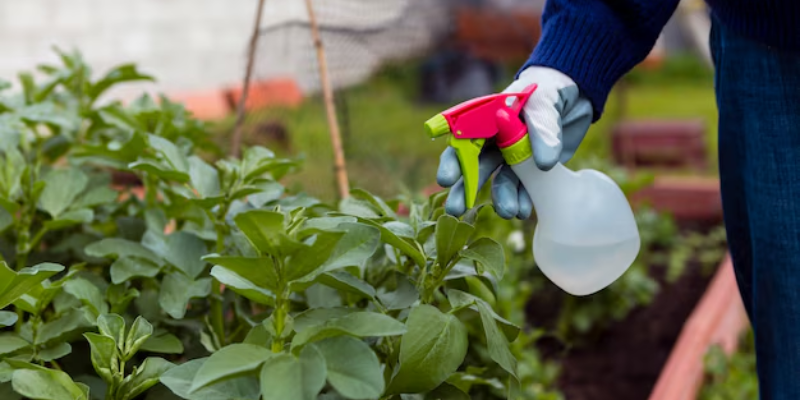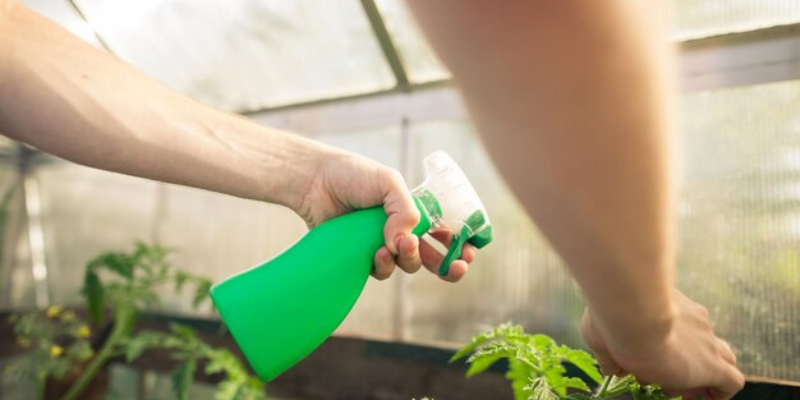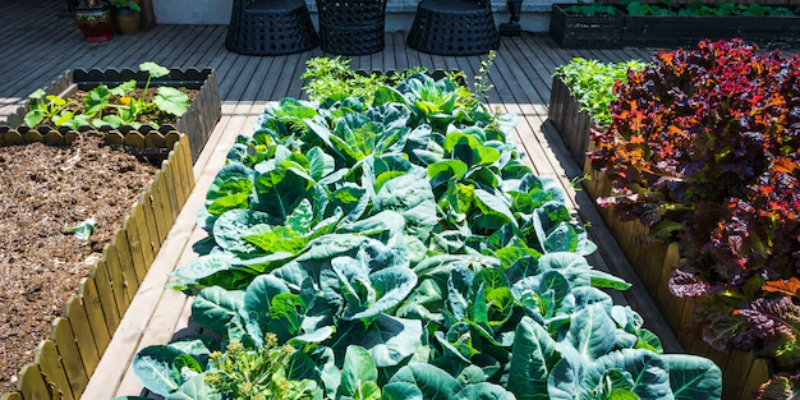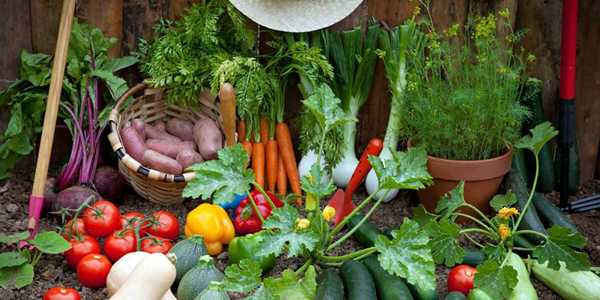10 Best Natural Ways To Keep Your Garden Pest - Free - Save Plants Naturally!
Gardening is more challenging than it looks. You need to take care of many things to keep your plants safe. Where there are plants, there are pests as well. They hinder the proper growth of your buddies. Most people use pesticides and different chemicals to treat this condition. However, using pesticides can also cause harm to your plants.
That's why people are now adopting dozens of natural ways to keep their garden pest-free. In this blog, we are going to discuss the same scenario. By the end of this read, you will be able to fight with these plant enemies naturally.
Make Sure The Soil Is Clean
Creating a pest-resistant garden starts with nurturing healthy soil, and it's easier than it sounds! Begin by mixing in organic matter, like compost, at the start of the growing season—this helps enrich the soil and naturally wards off pests. Then, cover your garden with black plastic or cardboard for about six months.
This step allows the sun to heat the soil underneath, eliminating pests, eggs, weeds, and other harmful organisms. After removing the cover, loosen the soil with a light till, and you're ready to plant! A little patience now means healthier, happier plants later.
Look For Active Predators
Beneficial insects, like ladybug nymphs, lacewings, dragonflies, and hoverflies, feed on pests that harm your plants. Ladybugs, for example, love to snack on aphids. To keep these helpful insects around, plant things they enjoy, like marigolds and herbs. This natural approach protects your crops and helps maintain a balanced ecosystem in your garden.
By welcoming these "good bugs," you're building a healthier, more resilient garden that checks pest problems.
Make Homemade Insecticides
Homemade insecticides are an easy, safe way to protect your garden from pests. Try this simple recipe: mix a tablespoon of organic dish soap with a quart of water, then spray it directly on your plants. This solution is excellent for tackling aphids, mites, and other pesky bugs. You can also whip up a garlic spray; blend some garlic cloves with water, strain it, and spritz it on your plants.
These natural sprays are non-toxic and gentle on plants, making them perfect for new gardeners who want a practical, eco-friendly pest control solution.

Do The Handpicking
Sometimes, the most straightforward methods work best! Handpicking pests like caterpillars and slugs can help control their numbers. Regularly stroll through your garden, watching for any signs of damage. If you spot pests, pick them off and dispose of them.
Water Them In The Morning
Plants need water for photosynthesis during the day, so it's best to water in the morning. Watering later can leave leaves damp overnight, creating the perfect conditions for fungus and disease to thrive. When you water, focus on soaking the roots instead of wetting the leaves. Soaker hoses or drip irrigation systems are great for this, as they deliver water directly to the roots, helping to conserve water and keep your garden healthy.
Use Vegetable Oil
A vegetable oil insecticide is another excellent, natural way to tackle pesky bugs in your garden. The soap and oil mixture coats the insects and helps remove them without harming your plants. Mix one tablespoon of mild soap, like dish or castile soap, with one cup of vegetable oil. Then, add two tablespoons of this oil mixture to one quart of water and pour it into a spray bottle. Shake it up; you have a simple, eco-friendly solution to keep your garden bug-free.

Try Netting
Horticultural netting is a great way to protect your plants from pests; choosing the right type is critical. Since pests come in all sizes, pick netting with holes small enough to keep the unwanted bugs out while still letting air and sunlight in. Once you've got the suitable netting, drape it over hoops that cover your garden and secure it with sandbags, bricks, or anything heavy to hold it in place.
Use Hot Pepper Spray
Hot pepper sprays are a great way to deter deer and other pests but require extra care. To make the spray, combine two tablespoons of red pepper, cayenne pepper, or paprika with 1 gallon of water and add six drops of mild dish soap to help it bind. Pour the solution into a labelled spray bottle and apply it to both sides of the leaves at sundown, avoiding the day's heat.
Implement Crop Rotation
Growing the same crop in the same spot each year can lead to a buildup of pests that target that specific plant. Crop rotation helps prevent this by disrupting the pests' life cycle and keeping them from settling in. It also helps maintain healthy soil by preventing nutrient depletion. For example, plant legumes like beans or peas after planting nitrogen-hungry crops like tomatoes, corn, or squash.

Use Vinegar
A simple vinegar solution can help repel and kill pests like slugs, moths, and ants in your garden. Mix one part vinegar (apple cider or white) with three parts water and add a few drops of mild dish soap to help the solution stick. Put it in a spray bottle and apply it to the base of infested plants, or spray directly on the leaves if there's a heavy infestation. Vinegar is an excellent alternative to beer for slugs and snails.
Enjoy Having A Pest-Free Garden!
Caring for your garden can be rewarding and fun. With these natural, easy-to-use solutions, you'll be well on your way to creating a thriving, pest-free space. Remember to be patient, test solutions first, and enjoy nurturing your plants.





